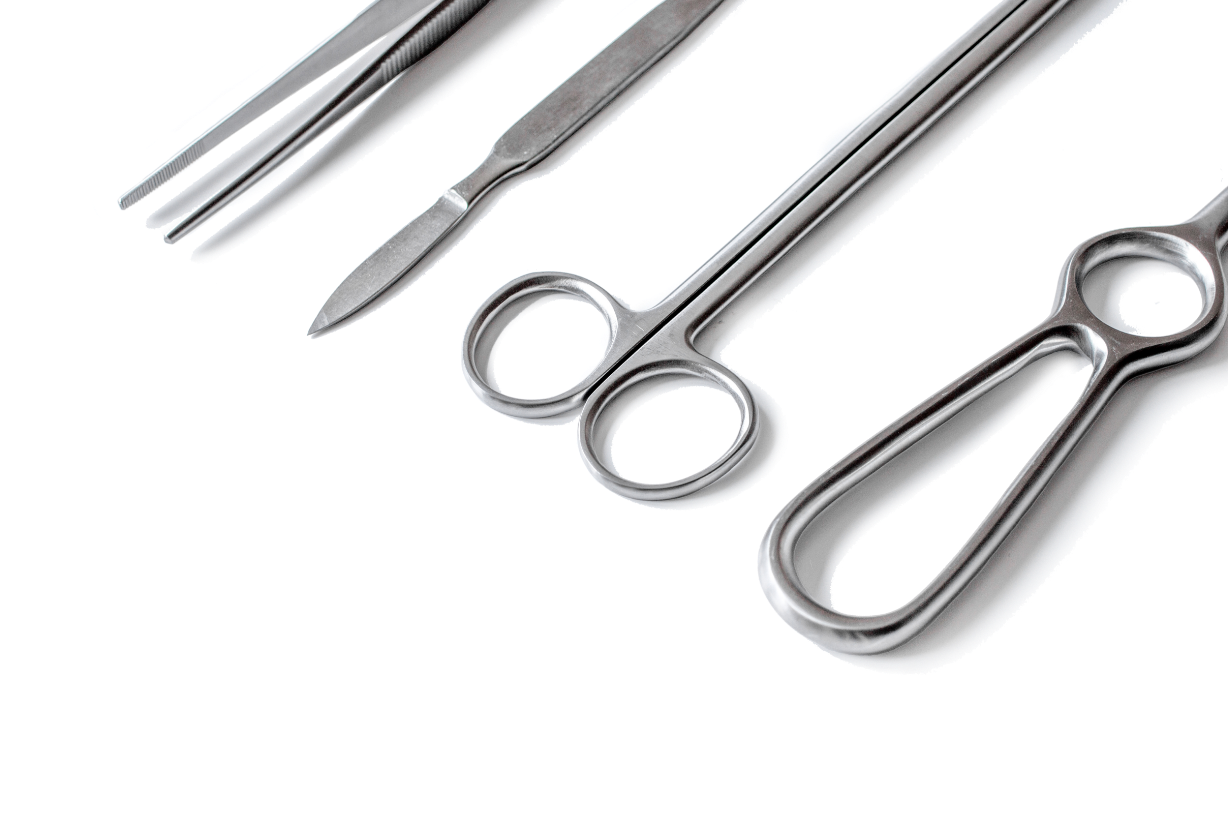The Implants
The implant itself is a small post screw made of medical-grade titanium. They are placed surgically into the jaw bone and act as tooth root substitutes. The bone will heal around the implant and bond to it creating a strong foundation for replacement teeth. Implants help preserve facial structure, preventing bone deterioration that occurs when teeth are lost. Dental implants can replace a single tooth, multiple teeth (implant-supported bridge), or be used to support a denture.
Depending on the number of missing teeth, our surgeons, yourself, and the referring provider will create a treatment plan that is specific to your individual case. We can provide a range of treatment options. A large factor is the style of teeth or dentures you wish for at the end of treatment.
It is very common for patients who are currently in dentures to seek dental implant surgery to improve the retention and stability of the denture. This can lead to improved quality of life and the ability to eat any type of food!
Once placed, dental implants function and perform like natural teeth. Although they are not susceptible to cavities like natural teeth, they may develop gum disease and bone loss if they are not well maintained. You will need to see your dentist for regular checkups and cleanings to maintain the health of your teeth, gums, and implants.
For most patients, the placement of dental implants involves a single procedure of surgical insertion of the implant and a healing cylinder. The majority of dental implants are placed under local anesthesia. Sedation may be considered depending on the complexity of the treatment, as well as your anxiety level.
The implant is then allowed to bond to the bone (osseointegrate) over a period of 2-3 months. We will see you regularly after the surgery to keep a close watch on the healing process. When the implants are fully healed you will be seen by your dentist to complete the treatment. The whole process may take 6-9 months if bone or gum grafting is required. Depending on the case, we may be able to avoid grafting procedures. Most patients experience minimal disruption in their daily lives.
Our Process
We use the most recent advances in dental implant technology. Three dimensional scans are often utilized so a virtual surgery can be planned prior to the actual procedure where pitfalls can be identified in advance. At Maxillo Winnipeg, we only use mainstream implant systems from reputable manufacturers. These companies have proven themselves as leaders in the field of implant dentistry and also have a strong local support network of company representatives willing to give their expertise on cases.
Dental implant placement is a team effort between the oral and maxillofacial surgeon and a restorative dentist or prosthodontist. Our doctors will perform the actual implant surgery, initial tooth extraction and bone graft if necessary; the restorative dentist (your family dentist) fits and makes the permanent prosthesis. You can also request a temporary prosthesis to wear during the healing phase.
The Surgery
For most patients, the placement of dental implants involves a single procedure of surgical insertion of the implant and a healing cylinder. The majority of dental implants are placed under local anesthesia with or without additional sedation.
The implant is then allowed to bond to the bone (osseointegrate) over a period of 3-4 months. We will see you regularly after the surgery to keep a close watch on the healing process and when the implants are fully healed you will be seen by your dentist to complete the treatment. The whole process may take 6-9 months. Most patients experience minimal disruption in their daily lives.
After-Care
General Anesthesia/Intervenous Sedation
Following General Anesthesia or Intervenous Sedation, you are considered impaired for 24 hours. Do not operate a motor vehicle or make important decisions during this time frame. We recommend no consumption of alcohol or drugs during this period, or while taking the prescribed medications.
The more frequent you rinse with salt water, the better
Following surgery, some pain is normal and expected. Take the prescription pain medication as you feel necessary, not exceeding the daily maximum dose. Over-the-counter Tylenol or Advil can be just as helpful. Your surgeon will discuss this with you.
A small amount of bleeding is normal after the surgery. Your surgeon will discuss with you whether stitches were used during the procedure. Non-dissolving stitches will be removed at a follow-up 10-14d post-surgery when we assess healing. If dissolving sutures (stitches) were placed, they will typically fall out after 4-7 days.
Smoking
Smoking should be avoided for at least 7 days post operatively. It is the primary cause of delayed wound healing and infection.
Brushing Teeth
Brushing your teeth is critical post-operatively to minimize pain and infection. Brush at least after every meal for 7 days. The cleaner you keep your mouth, the more comfortable you will be. You may use a small baby toothbrush with soft bristles and either warm water or toothpaste. Keep the brush on the teeth. If you bump into one of the dissolving sutures (stitches) you will not do any harm.
Mouth Wash
You will be prescribed a medicated oral rinse (chlorhexidine 0.12%) that you will begin to use 24 hours post-operatively. Do not use products such as Scope or Listerine. Warm salt water may be used in replacement of the chlorhexidine (1/4 teaspoon of salt dissolved in 250ml of warm water). The most frequent you rinse with salt water, the better.
Swelling
Swelling is completely normal and expected. It will peak 2-5 days post operatively then begin to subside. This may extend under the chin and down the neck. Ice packs are helpful on the cheek (20 minutes on, 20 minutes off) on the first postoperative day. Warm packs will be beneficial starting on day 2 post surgery.
Pain
Following jaw surgery, some pain is normal and expected. Take the prescription pain medication as you feel necessary, not exceeding the daily maximum dose. Over the counter Tylenol or Advil can be just as helpful. Dr. Scherle will discuss this with you.
Bleeding
A small amount of bleeding is normal after the surgery. You will have dissolving sutures (stitches) along the gum line that will fall out after 5-7 days.
Diet
Cold fluids are recommended for the first 2-3 days. Smoothies, protein shakes, ice cream or yogurt are good options. You may then progress your diet as you are comfortable. Food that is easily cut with a fork (fish, pasta, eggs) may be trialed, eventually working your way back to a normal diet as quickly as you are comfortable. Let your knife and fork do the chewing for you. Lots of small bites will make any meal manageable.
Bruising
Bruising may occur post operatively and can extend from the face, beneath the chin and onto the chest/breast. This is normal and should not cause alarm. It will resolve within 7-10 days.
Follow-Up
Please call the office should you experience any postoperative issues or have any questions. We will schedule a follow up visit at your convenience.



